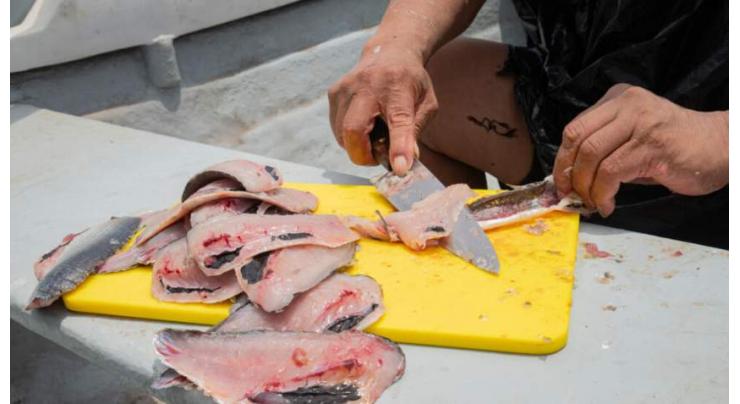
UNESCO To List Ceviche, Opera As 'intangible Heritage'
Sumaira FH Published December 05, 2023 | 07:17 PM

Dozens of global traditions are candidates for inscription as intangible global heritage by UNESCO this week, ranging from Italian opera singing and Bangladeshi rickshaw art to the Peruvian delicacy of ceviche
Paris, (APP - UrduPoint / Pakistan Point News - 5th Dec, 2023) Dozens of global traditions are candidates for inscription as intangible global heritage by UNESCO this week, ranging from Italian opera singing and Bangladeshi rickshaw art to the Peruvian delicacy of ceviche.
The UN cultural agency's Intangible Cultural Heritage Committee is expected to examine and approve 55 nominations in total as it meets in the town of Kasane in Botswana.
These include a bid from Italy to include opera singing, an art "transmitted only orally" between maestro and pupil that attracts many students from abroad.
Bangladesh is hoping to inscribe the art of painting the three-wheeled rickshaws that ply its capital's streets, contributing to a "roving exhibition of paintings" that is an "emblematic feature of urban life in Dhaka".
Peru has put forth the "preparation and consumption of ceviche", a traditional dish of raw fish marinated in lemon and seasoned with chilli, pepper and salt, for which the recipe is "inherited from generation to generation".
Azerbaijan, Iran, Uzbekistan and Turkey are together pushing for iftar, the meal shared by Muslims at the end of a day of fasting during the month of Ramadan, and its traditions to be recognised.
Other applicants include the "traditional skills of loincloth weaving" in Ivory Coast, as well as bolero -- "identity, emotion and poetry turned into song" -- from Cuba and Mexico.
The UNESCO Convention for the Safeguarding of the Intangible Cultural Heritage and its list were adopted in 2003, then ratified by 30 member states in 2006.
In the beginning, there was initial reluctance from some countries who feared certain states would seek to hog shared traditions for themselves, UNESCO Assistant Director-General for Culture Ernesto Ottone said.
But two decades on, 181 countries are signatories, and many have instead put forward joint petitions for traditions they share.
Sixteen Arabic-speaking countries thus banded together to have "Arabic calligraphy" listed in 2021, while another 24 states ranging from Austria to the United Arab Emirates saw "falconry" added the same year.
Related Topics
Recent Stories

Cricket: England v West Indies 3rd Test scoreboard

Finance minister briefs Chinese officials on reform agenda, engagement with IMF

Finland says Russian vessel violated its territorial waters

Olympic opening ceremony under way on River Seine

West Indies' treble strike rocks England in third Test

Ukraine court orders detention of suspect in murder of nationalist ex-MP

Long queues, ticketing problems ahead of Paris opening ceremony

Rana Sanaullah Khan joins Paris 2024 Olympics inauguration reception

Glowing tributes mark 69th birthday of President Zardari at Governor's House

Players unaware of spying scandal as Canada Olympic coach sent home: official

Naqvi hails Pak women cricketers for going down fighting against SL

'Sabotage' on French rail network before Olympics: What we know
More Stories From World
-
Biden talks Gaza ceasefire efforts with king of Jordan
5 hours ago -
Sinaloa Cartel co-founder pleads not guilty after stunning US capture
5 hours ago -
Panama says Venezuela blocked ex-presidents going to observe polls
5 hours ago -
Ethiopia mourns victims of landslide tragedy
5 hours ago -
Khan Yunis fighting displaces 180,000 Gazans in four days: UN
5 hours ago -
Trump slams rivals as he meets Netanyahu in Florida
5 hours ago
-
Obama & his wife, Michelle, officially endorse US VP Kamala Harris for president
5 hours ago -
Rain, cooling slow huge blaze in Canada's Jasper park
5 hours ago -
Airbus and Boeing supremacy secure despite turbulence
5 hours ago -
S.African police detain 95 Libyans at suspected military camp
6 hours ago -
'Slapping therapist' guilty over UK diabetic woman's death
6 hours ago -
Panama says Venezuela blocked flight of ex-presidents going to observe polls
6 hours ago